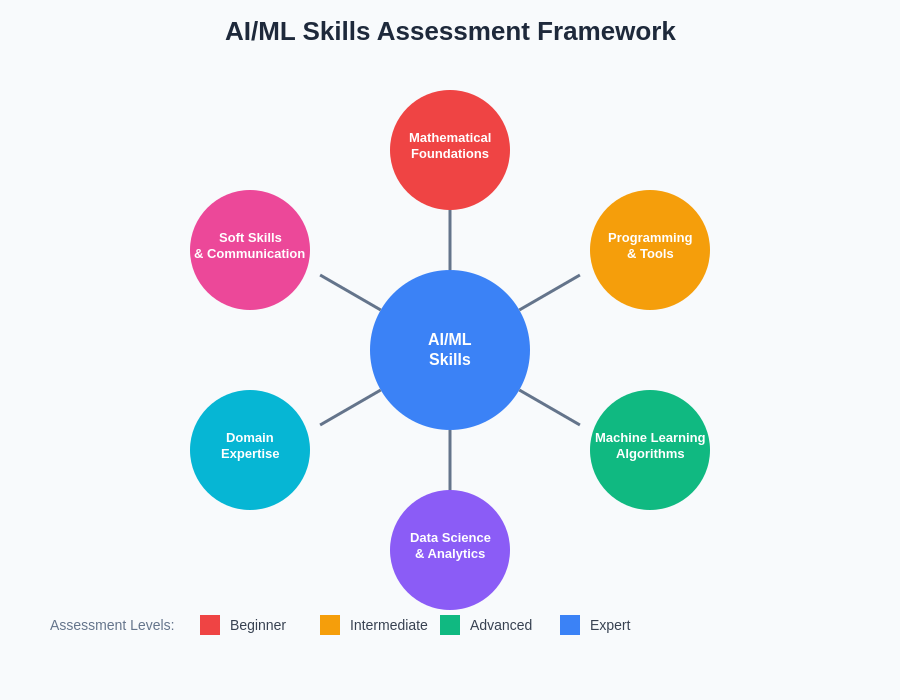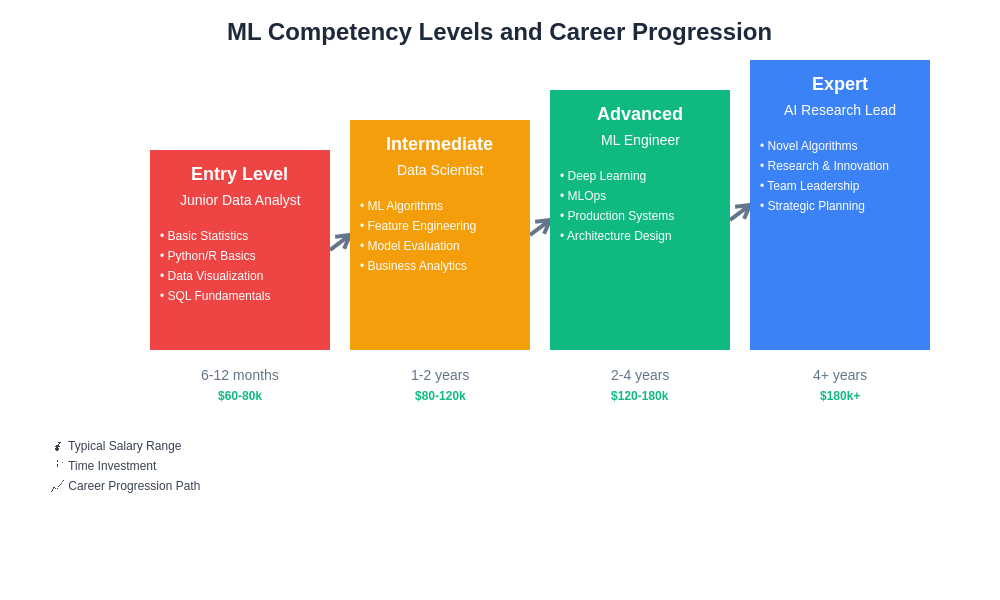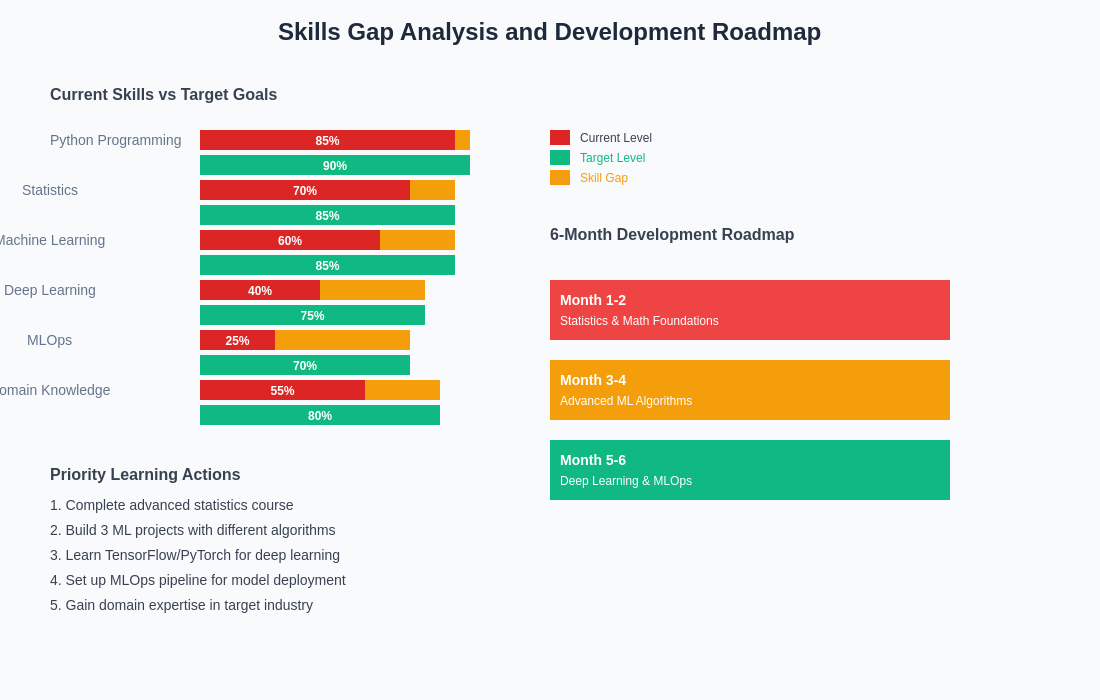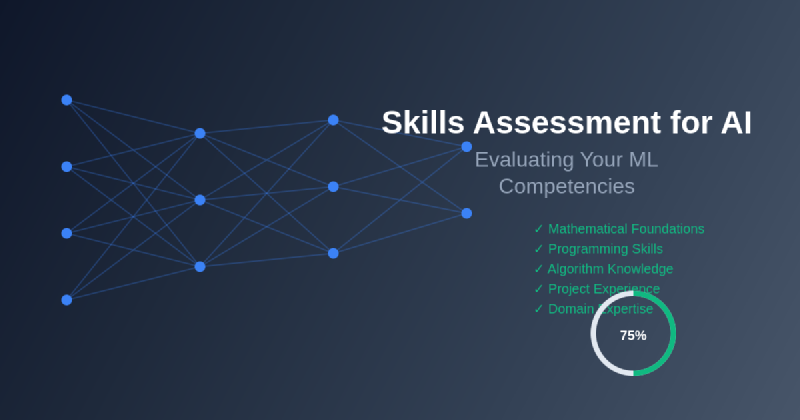The rapidly evolving landscape of artificial intelligence and machine learning demands continuous skill assessment and development to remain competitive in today’s technology-driven economy. Understanding where you stand in terms of AI and ML competencies has become crucial not only for career advancement but also for identifying knowledge gaps and planning strategic learning pathways that align with industry demands and emerging technological trends.
Discover the latest AI trends and educational content to stay informed about cutting-edge developments and skill requirements in the artificial intelligence field. The complexity and breadth of AI/ML skills make systematic assessment essential for professionals seeking to excel in data science, machine learning engineering, and related disciplines that are reshaping virtually every industry sector.
Foundational Knowledge Assessment Framework
Evaluating your AI and ML competencies begins with understanding the foundational concepts that underpin all advanced applications in artificial intelligence. These fundamental skills serve as the bedrock upon which specialized knowledge is built, making their thorough assessment critical for determining your current proficiency level and identifying areas requiring strengthening or expansion.
Mathematical foundations form the cornerstone of AI and ML expertise, encompassing linear algebra, calculus, statistics, and probability theory. Your proficiency in these areas directly impacts your ability to understand algorithm mechanics, optimize model performance, and troubleshoot complex implementation issues. A comprehensive assessment should evaluate your comfort level with matrix operations, eigenvalues and eigenvectors, gradient computations, statistical distributions, hypothesis testing, and Bayesian inference principles.
Programming competency represents another fundamental pillar of AI/ML skills, with Python and R serving as the primary languages for most machine learning applications. Your assessment should examine not only syntax familiarity but also proficiency with essential libraries such as NumPy, Pandas, Scikit-learn, TensorFlow, and PyTorch. Understanding how to efficiently manipulate data structures, implement algorithms from scratch, and leverage pre-built frameworks indicates the depth of your programming foundation.
Technical Skills Evaluation Matrix
The technical dimension of AI and ML competencies encompasses a broad spectrum of specialized knowledge areas, each requiring distinct skill sets and practical experience. Developing a comprehensive evaluation matrix helps identify strengths across different technical domains while highlighting opportunities for targeted skill development and specialization.
Data preprocessing and feature engineering capabilities represent critical technical skills that significantly impact model performance and project success. Your proficiency should encompass data cleaning techniques, handling missing values, outlier detection and treatment, feature scaling and normalization, dimensionality reduction methods, and creating meaningful derived features from raw data sources.
Machine learning algorithm knowledge spans supervised, unsupervised, and reinforcement learning paradigms, with each category requiring deep understanding of when and how to apply specific techniques. Your assessment should evaluate familiarity with classification algorithms like decision trees, random forests, support vector machines, and neural networks, regression techniques including linear, polynomial, and regularized approaches, clustering methods such as k-means and hierarchical clustering, and advanced topics like ensemble methods and deep learning architectures.
Enhance your AI learning journey with Claude’s advanced capabilities for comprehensive skill development and personalized guidance in machine learning concepts and applications. The integration of AI-powered learning tools can accelerate your competency development while providing interactive feedback on your progress across different skill domains.

The comprehensive skills assessment framework provides a structured approach to evaluating competencies across multiple dimensions, from mathematical foundations through advanced specialization areas. This systematic evaluation enables targeted skill development and career planning in the rapidly evolving AI landscape.
Practical Application and Project Portfolio Assessment
Beyond theoretical knowledge, the ability to translate concepts into working solutions represents a crucial competency dimension that employers and collaborators value highly. Assessing your practical application skills requires examining your project portfolio, implementation experience, and problem-solving approaches across diverse AI and ML challenges.
Project complexity evaluation should consider the scope and sophistication of machine learning projects you have completed or contributed to significantly. Simple classification or regression projects demonstrate foundational competency, while complex multi-stage pipelines involving data ingestion, preprocessing, model training, hyperparameter optimization, and deployment showcase advanced practical skills. The diversity of domains you have worked in also indicates adaptability and broad application knowledge.
End-to-end implementation capability encompasses the entire machine learning lifecycle from problem definition through production deployment. Your assessment should examine experience with data collection and preparation, exploratory data analysis, feature engineering, model selection and training, performance evaluation and validation, model interpretation and explainability, and production deployment considerations including scalability and monitoring.
Domain-Specific Expertise Evaluation
Artificial intelligence and machine learning applications span numerous specialized domains, each requiring unique knowledge combinations and skill sets. Evaluating your domain-specific expertise helps identify areas of strength and specialization while revealing opportunities for expanding into new application areas that may enhance your career prospects and project versatility.
Computer vision competencies involve understanding image processing techniques, convolutional neural networks, object detection and recognition, image segmentation, and video analysis. Your proficiency assessment should cover preprocessing techniques for visual data, familiarity with frameworks like OpenCV and specialized deep learning architectures, experience with transfer learning for vision tasks, and understanding of emerging techniques in generative models and visual transformers.
Natural language processing expertise encompasses text preprocessing, tokenization and vectorization, sentiment analysis, named entity recognition, language modeling, and advanced transformer architectures. Assessment should evaluate your experience with libraries like NLTK, spaCy, and Hugging Face Transformers, understanding of attention mechanisms and transformer models, proficiency in handling multilingual data, and familiarity with recent developments in large language models.
Tool Proficiency and Technology Stack Assessment
The AI and ML ecosystem includes numerous specialized tools, platforms, and frameworks that streamline development processes and enable scalable solution deployment. Your proficiency with these technologies significantly impacts your productivity and ability to collaborate effectively on complex projects requiring diverse technical capabilities.
Development environment mastery encompasses Jupyter notebooks, integrated development environments, version control systems like Git, and collaborative platforms such as GitHub or GitLab. Your assessment should evaluate comfort level with interactive development, code organization and documentation practices, collaborative development workflows, and familiarity with continuous integration and deployment practices for ML projects.
Cloud platform competency has become increasingly important as organizations migrate AI workloads to scalable cloud infrastructure. Your skills assessment should examine experience with major cloud providers like AWS, Google Cloud Platform, and Microsoft Azure, familiarity with managed ML services such as SageMaker, AutoML, and Azure Machine Learning, understanding of containerization technologies like Docker and Kubernetes, and knowledge of distributed computing frameworks for large-scale data processing.
Explore comprehensive AI research capabilities with Perplexity to enhance your knowledge of emerging tools and technologies that are shaping the future of artificial intelligence and machine learning applications.
Data Science and Analytics Competencies
Data science skills form a critical component of AI and ML expertise, encompassing the ability to extract insights from complex datasets and communicate findings effectively to diverse stakeholders. These competencies bridge technical implementation skills with business understanding and strategic decision-making capabilities.
Statistical analysis proficiency involves understanding experimental design, hypothesis testing, confidence intervals, correlation and causation analysis, and advanced statistical modeling techniques. Your assessment should evaluate ability to design and conduct A/B tests, interpret statistical significance and effect sizes, handle confounding variables and selection bias, and apply appropriate statistical methods for different data types and research questions.
Data visualization and communication skills enable effective presentation of complex analytical findings to both technical and non-technical audiences. Competency assessment should cover proficiency with visualization libraries like Matplotlib, Seaborn, and Plotly, understanding of visualization best practices and cognitive principles, ability to create compelling narratives around data insights, and experience presenting analytical findings to diverse stakeholder groups.

The progression of machine learning competencies from foundational knowledge through advanced specialization reflects typical career development paths in AI and data science. Understanding your current level helps identify next steps for skill advancement and career growth opportunities.
Soft Skills and Professional Development
Technical expertise alone is insufficient for success in AI and ML roles, which increasingly require strong collaboration, communication, and leadership skills. Assessing your soft skills provides a complete picture of your professional capabilities and identifies areas for development that can significantly impact career advancement and project success.
Communication and presentation abilities are essential for translating technical concepts into business value and securing stakeholder buy-in for AI initiatives. Your assessment should evaluate comfort level explaining complex algorithms to non-technical audiences, ability to document technical work clearly and comprehensively, experience presenting findings and recommendations to leadership teams, and skills in facilitating cross-functional collaboration on data-driven projects.
Project management and leadership competencies become increasingly important as you advance in your AI/ML career. Assessment areas include experience leading technical teams and projects, ability to scope and estimate AI project timelines and resources, familiarity with agile development methodologies and project management tools, and capacity to navigate organizational challenges and stakeholder management in data science contexts.
Industry Knowledge and Business Acumen
Understanding how AI and ML create business value across different industries represents a crucial competency that distinguishes exceptional practitioners from those with purely technical skills. This knowledge enables more effective project planning, stakeholder communication, and strategic decision-making throughout the ML development lifecycle.
Sector-specific applications assessment should examine your understanding of how AI/ML solutions address real-world business challenges in industries such as finance, healthcare, retail, manufacturing, and technology. Knowledge areas include regulatory compliance requirements, data privacy and security considerations, industry-specific metrics and success criteria, and understanding of typical project constraints and stakeholder priorities.
Business impact measurement involves quantifying the value created by AI and ML initiatives through appropriate metrics and evaluation frameworks. Your competency assessment should cover understanding of business metrics like return on investment, customer lifetime value, and operational efficiency measures, ability to design experiments that measure business impact of ML interventions, experience with cost-benefit analysis for AI projects, and familiarity with frameworks for demonstrating ML project value to business stakeholders.
Emerging Technologies and Future Readiness
The rapid pace of innovation in artificial intelligence requires continuous learning and adaptation to remain current with emerging technologies and methodologies. Assessing your knowledge of cutting-edge developments and capacity for ongoing skill development provides insight into your long-term career sustainability and growth potential.
Generative AI and large language models represent one of the most significant recent developments in artificial intelligence, with applications spanning content creation, code generation, and complex reasoning tasks. Your assessment should evaluate familiarity with transformer architectures, understanding of prompt engineering techniques, experience with APIs for large language models, and awareness of ethical considerations and limitations associated with generative AI systems.
Advanced AI topics including explainable AI, federated learning, quantum machine learning, and AI safety considerations are becoming increasingly relevant for senior practitioners and researchers. Competency assessment should examine awareness of these emerging areas, understanding of their potential applications and limitations, and capacity to learn and adapt to new technological developments as they emerge.

A systematic approach to identifying skill gaps and creating development roadmaps enables targeted learning efforts that maximize career advancement opportunities and technical competency growth in artificial intelligence and machine learning fields.
Assessment Methodologies and Validation Approaches
Developing reliable methods for evaluating AI and ML competencies requires combining multiple assessment approaches that capture both theoretical knowledge and practical application capabilities. Understanding different validation methodologies helps ensure accurate self-assessment and provides frameworks for demonstrating competencies to employers and collaborators.
Portfolio-based assessment involves systematic evaluation of completed projects, code repositories, and documented case studies that demonstrate your capabilities across different aspects of the ML development lifecycle. Effective portfolio assessment should include project diversity analysis, code quality evaluation, problem complexity assessment, and documentation completeness review.
Practical coding challenges and technical interviews provide standardized methods for assessing implementation skills under controlled conditions. These assessments typically evaluate algorithm implementation ability, code optimization skills, problem-solving approaches, and communication effectiveness during technical discussions. Understanding common assessment formats helps guide preparation efforts and skill development priorities.
Continuous Learning and Skill Development Strategies
Maintaining and expanding AI and ML competencies requires structured approaches to continuous learning that balance theoretical advancement with practical skill development. Successful professionals employ diverse learning strategies that accommodate different learning styles and time constraints while ensuring comprehensive skill coverage.
Formal education pathways include degree programs, professional certifications, and structured online courses that provide systematic coverage of AI and ML topics. Evaluation criteria should consider program comprehensiveness, practical application opportunities, industry recognition value, and alignment with your specific career objectives and current skill level.
Self-directed learning through research papers, open-source contributions, and personal projects enables targeted skill development and exploration of emerging technologies. Effective self-directed learning requires strong motivation, disciplined study habits, and mechanisms for validating learning progress through practical application and peer feedback.
Career Planning and Skill Alignment
Understanding how your current AI and ML competencies align with career objectives and market demands enables strategic skill development planning that maximizes professional growth opportunities. This alignment process requires regular assessment of both your capabilities and evolving industry requirements.
Role-specific competency mapping involves analyzing job requirements across different AI/ML career paths including data scientist, machine learning engineer, AI researcher, and product manager roles focused on AI applications. Understanding competency requirements for target roles helps prioritize skill development efforts and identify transferable skills from your current background.
Market demand analysis examines industry trends, emerging technologies, and skills shortages to identify high-value competency development opportunities. This analysis helps ensure that your skill development efforts align with market needs and position you advantageously for future career opportunities in the rapidly evolving AI landscape.
The systematic assessment of your AI and ML competencies provides a foundation for strategic career development and continuous improvement in this dynamic field. Regular evaluation using comprehensive frameworks ensures that your skills remain current and aligned with both personal objectives and industry evolution, positioning you for long-term success in artificial intelligence and machine learning applications.
Disclaimer
This article is for informational purposes only and does not constitute professional career advice. The AI and ML competency assessments described are general frameworks and may not reflect specific requirements for particular roles or organizations. Readers should conduct thorough research and consider their individual circumstances when evaluating skills and planning career development strategies. The rapidly evolving nature of AI technology means that skill requirements may change quickly, requiring ongoing assessment and adaptation.
